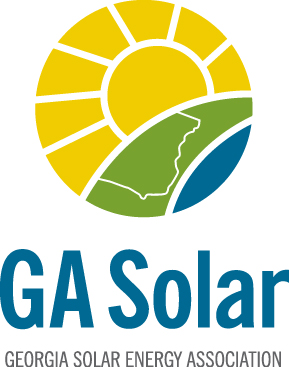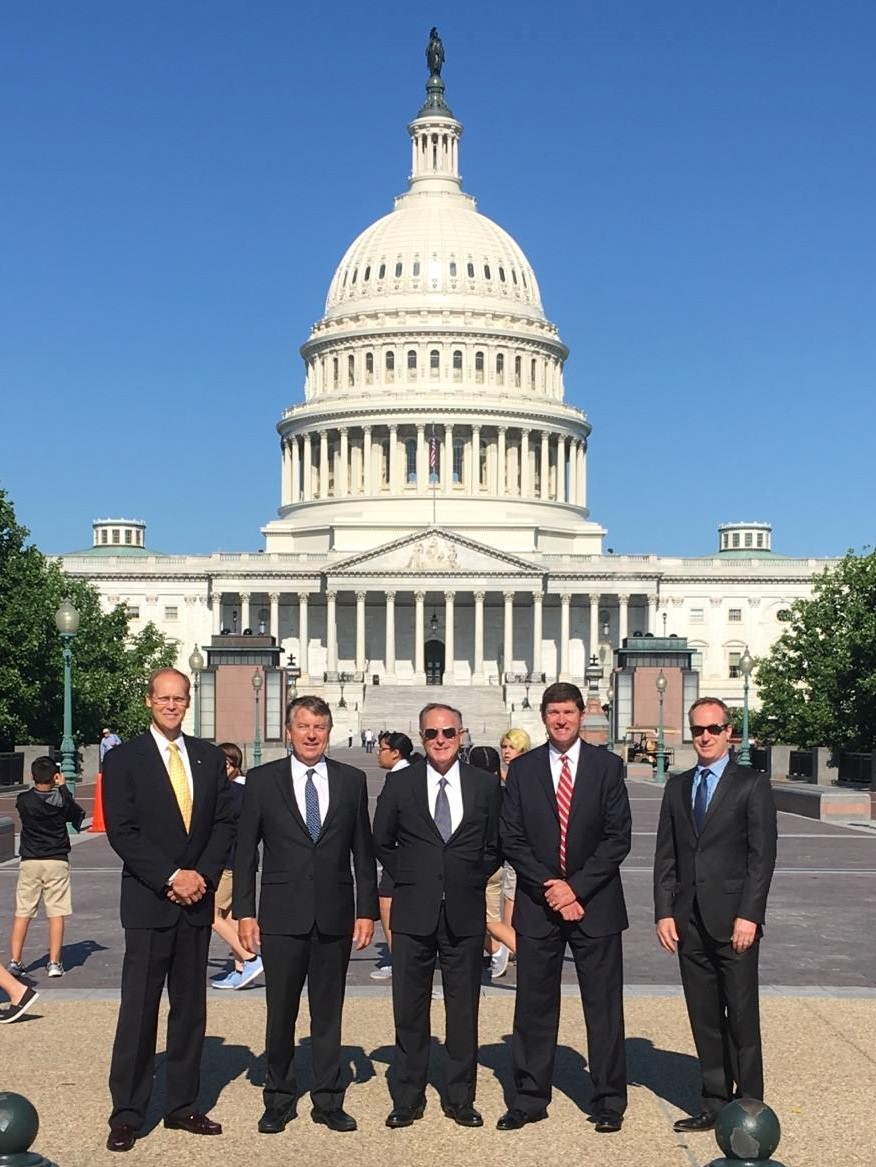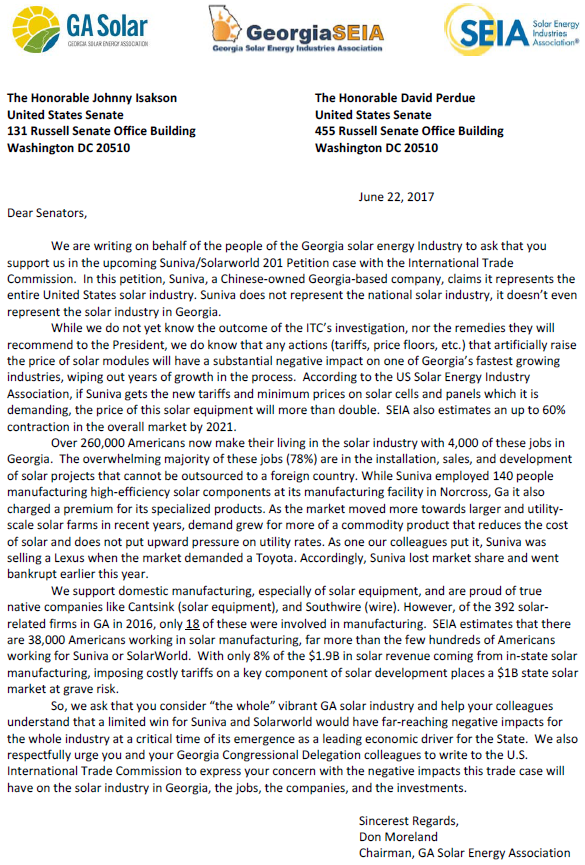Message from the ED - August E-News
Message from the Executive Director - August 2019 E-News
I had the opportunity to join PSC Commissioner Tim Echols and his Co-Host John Noel last week on their radio show, Energy Matters (Listen: Episode 31). We discussed a number of topics, including the trend of NFL and College teams who make it to playoff and championship games coming from some of the most sustainable stadiums in the country. (As a Falcon’s fan, It’s only right that I pause here and declare “This is our year!”) And, of course, we talked about how GA Solar serves the state’s solar interest through education and advocacy.
As I prepared for the show, I reflected on the organization’s history. I’ve personally been along for seven years of the journey but the Georgia Solar Energy Association dates back to 2002. That’s 17 years of education and advocacy efforts to establish and grow our solar industry in the South. In light of its humble beginnings, GA Solar members celebrated last month’s announcements of IRP rulings as a milestone achievement we can be significantly proud of. GA Solar, in partnership with GASEIA, intervened in several areas of the IRP and consider the outcome a victory for our ongoing efforts to carve a path of access for less-common types of solar producers through our Solar for All campaign.
The plan proposed by PSC Chairman Lauren “Bubba” McDonald and approved by the PSC will create a range of solar investment options in the Georgia Power resources blueprint for the next 20 years. In the largest category, utility scale solar, the plan will add two gigawatts (2,000 megawatts) to the state’s growing portfolio of large solar farms. McDonald’s plan includes 1,000 megawatts of installations known as CRSP (Customer Renewable Supply Procurement) for GPC customers statewide, with an electrical demand greater than 3MW.
As a result of our efforts, the plan reserves 210 megawatts for distributed generation, AKA “rooftop solar” and an additional 50 megawatts for customer-sited solar arrays 1kW – 3MW in size.
If you’ve donated, served, attended, campaigned, shared a post or emailed your PSC or state representative, thank you. Your efforts aided in these accomplishments. The fight for fair and equitable solar policy continues as we advocate for all consumers of electricity throughout the state, including customers of EMCs and Municipal Electric Authorities, to have access to reasonably priced solar resources. GA Solar will continue to push to remove barriers to rooftop solar, protect consumers, and unlock the free-market potential of solar promising continued growth for years to come.
Georgia has a celebrated history and legacy of policy progress, setting the tone for surrounding states. It’s the same with Solar Energy. Solar’s benefits, if allowed, can positively and dramatically improve the lives of Georgians, from struggling farmers in South Georgia to the most energy burdened parties in the inner city, or from the small business to the Fortune 500 company. Solar energy has the potential to be enjoyed by people of every economic standing, geographic location, or political affiliation, providing the opportunity for anyone and everyone to leave a legacy of clean air and economic opportunity for their kids and grandkids.



 Last year, GA Solar joined with other stakeholders in successful negotiations with Central Georgia EMC to alleviate punitive and discriminatory fees aimed exclusively at solar customers. Since then, our members and their customers have encountered similar charges in other locations throughout the state.
Last year, GA Solar joined with other stakeholders in successful negotiations with Central Georgia EMC to alleviate punitive and discriminatory fees aimed exclusively at solar customers. Since then, our members and their customers have encountered similar charges in other locations throughout the state.








